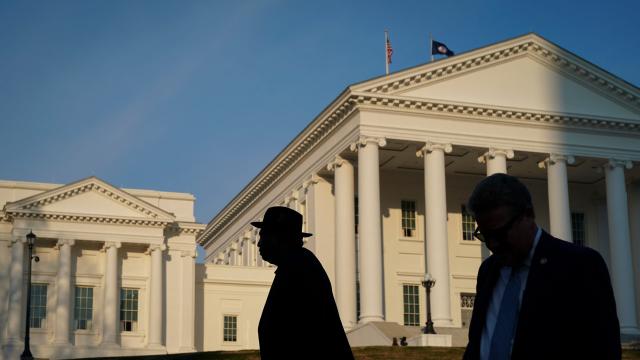A update to Virginia, U.S.A.’s law against revenge porn banning the distribution of videos and images that have been deepfaked – modified using machine learning algorithms to picture someone else – or otherwise created with the intent to “coerce, harass, or intimidate” a victim went into effect on Tuesday, per CNET.
Revenge porn is a common neologism for the distribution of sexually graphic media of another person without their consent. Virginia passed a law in 2014 making doing so with a malicious intent a Class 1 misdemeanour. The amended law now extends to the malicious distribution of “a falsely created videographic or still image.” As such, it extends beyond deepfakes and would include methods such as Photoshop.
According to Ars Technica, July 1 is the standard date in Virginia that new laws take effect, with the General Assembly passing the bill in early March and being signed into law by Governor Ralph Northam later in the month. A Class 1 misdemeanour in Virginia can carry up to 12 months in prison and/or up to $US2,500 ($3,591) in fines.
While the law encompasses manipulated photos of the kind that have been enabled by computer technology for years, legislators involved in the bill’s passage touted it as specifically targeting deepfakes.
Complicated algorithms that can automatically swap the face of one person in a pornographic video with another have improved dramatically in recent years. (Truly seamless algorithmic face-swaps of individuals moving and interacting in the environment aren’t here yet, though the proliferation of extremely convincing talking-head style videos that can be generated from a small number of images or a short clip is not reassuring.)
Perpetrators put revenge porn “on a website with the intent to coerce, harass or maliciously hurt those folks,” Delegate Marcus B. Simon of Fairfax, who introduced the bill, told WTKR earlier this year. “These days you don’t even need to actually have photos like that — of the person, in your possession… all you have to have are pictures of their face. You can use artificial intelligence to wrap that on the body.”
Deepfakes have raised a lot of eyebrows in the past few years because of their potential utility in everything from political disinformation campaigns to spoofing facial recognition systems, but manipulated pornography has been viewed as one of the most troubling applications.
Several platforms including Reddit and Pornhub have moved to ban the resulting deepfakes, noting they are implicitly non-consensual.
The developer of an app called DeepNude, which was capable of digitally altering photos of women to remove their clothes, was recently forced to shut the project down after a massive online backlash.
